
This integrated system combines battery charge/discharge testing with environmental chamber capabilities, enabling performance testing under various temperature conditions.
· Compact Integration: Combines charge/discharge modules with environmental simulation (constant/variable temperature) to reduce footprint.
· Versatile Testing: Supports constant current/voltage charge/discharge, capacity analysis, cycle life testing, DCIR detection, and more.
· Unified Operation: Compatible with BTS upper-computer control for seamless operation across multiple devices.
· Multi-Zone Temperature Control: Independent temperature control for multiple zones to meet complex testing needs.
· Flexible Ranges: Customizable voltage/current ranges for applications in materials research, 3C batteries, EV batteries, and beyond.
Via BTS software, they combine temperature control with battery performance testing efficiently.
· Conducts charge/discharge and temp cycle tests for accuracy.
· Centralized data management generates comprehensive reports for R&D and production.
· Graphical workflow designs handle complex scenarios like cyclic and pulse testing, plus real-world simulations.
· Multi - dimensional data analysis (cycle count, temp, SOC) with custom report templates.

Integrating charge-discharge and temperature testing into one.
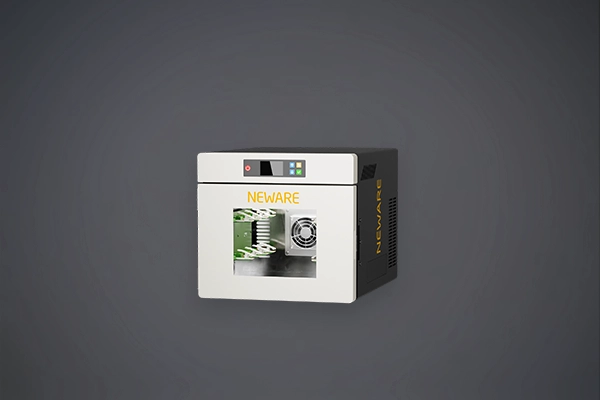
● Voltage & Current Accuracy:±0.05% F.S.
● Sampling Time:100ms
● Number of Channels:16CH
● Temperature Range & Deviation:32℉ ~ 140℉±3.6℉(15℃ ~ 60℃±2.0℃)
● Heating Efficiency:77℉ ~ 140℉≤50min(25℃ ~ 60℃)
● Cooling Efficiency:77℉ ~ 59℉≤60min(25℃~15 ℃)
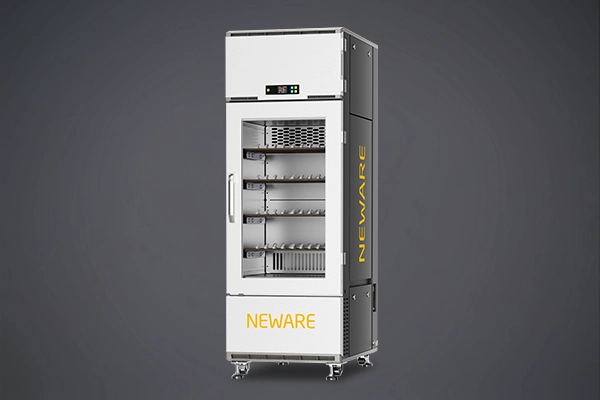
● Voltage & Current Accuracy:±0.01% F.S.
● Recording Frequency:100Hz
● Number of Channels:160CH
● Temperature Range & Deviation:32℉ ~ 140℉±3.6℉(0℃ ~ 60℃±2.0℃)
● Heating Efficiency:77℉ ~ 140℉ ≤30min(25℃ ~ 60℃)
● Cooling Efficiency:77℉ ~ 32℉≤50min(25℃~0 ℃)
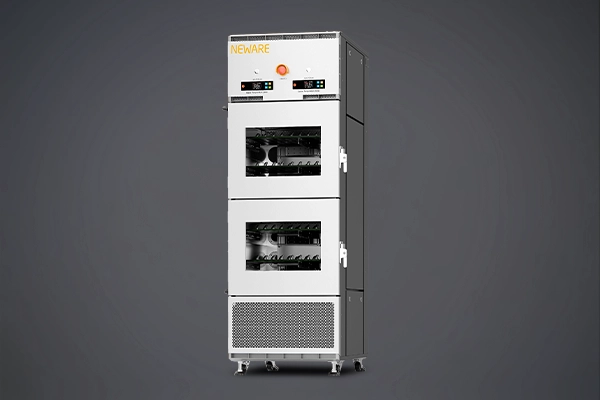
● Voltage & Current Accuracy:±0.05% F.S.
● Recording Frequency:10Hz
● Number of Channels:160CH
● Temperature Range & Deviation:32℉ ~ 140℉±3.6℉(0℃ ~ 60℃±2.0℃)
● Heating Efficiency:77℉ ~ 140℉ ≤30min(25℃ ~ 60℃)
● Cooling Efficiency:77℉ ~ 32℉≤50min(25℃~0 ℃)
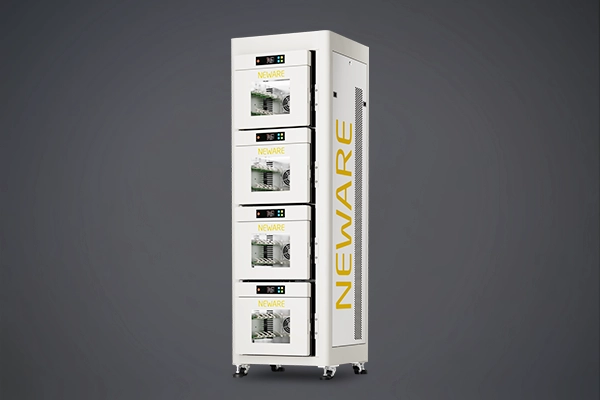
● Voltage & Current Accuracy:±0.05% F.S.
● Sampling Time:100ms
● Number of Channels:64CH
● Temperature Range & Deviation:59℉ ~ 140℉±3.6℉(15℃ ~ 60℃±2.0℃)
● Heating Efficiency:77℉ ~ 140℉≤50min(25℃ ~ 60℃)
● Cooling Efficiency:77℉ ~ 59℉≤60min(25℃~15 ℃)

● Voltage & Current Accuracy:±0.05% F.S.
● Recording Frequency:100Hz
● Number of Channels:80CH
● Temperature Range & Deviation:50℉ ~ 185℉±3.6℉(10℃ ~ 85℃±2.0℃)
● Heating Efficiency:77℉ ~ 185℉ ≤40min(25℃ ~ 85℃)
● Cooling Efficiency:77℉ ~ 50℉≤40min(25℃~10 ℃)
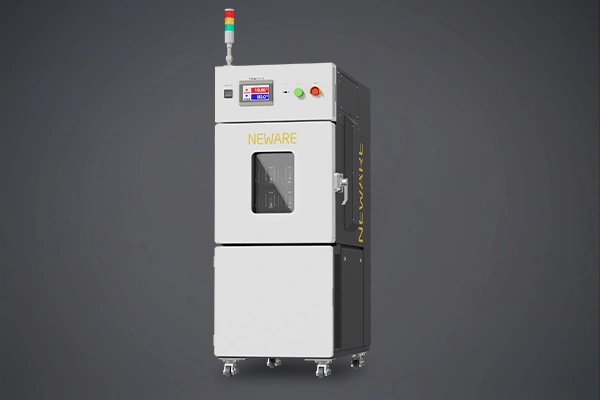
● Current & Voltage Accuracy: ±0.05% F.S.
● Data Logging Frequency: 10Hz
● Temperature Range & Deviation: -70℃~150℃ ±2℃
● Temperature Fluctuation: ≤0.5℃
● Heating Time: 20℃ → 150℃ ≤60min
● Cooling Time: 20℃ → -70℃ ≤75min
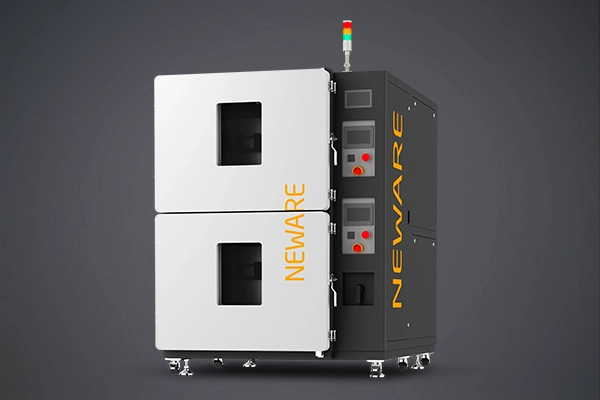
● Voltage & Current Accuracy:±0.05% F.S.
● Recording Frequency:100Hz
● Temperature Fluctuation:≤1.8℉(1℃)
● Temperature Range & Deviation:-40℉ ~ 302℉±3.6℉(-40℃ ~ 150℃±2.0℃)
● Heating Efficiency:68℉ ~ 302℉ ≤60min(20℃ ~ 150℃)
● Cooling Efficiency:68℉ ~ -40℉≤60min(20℃~-40℃)
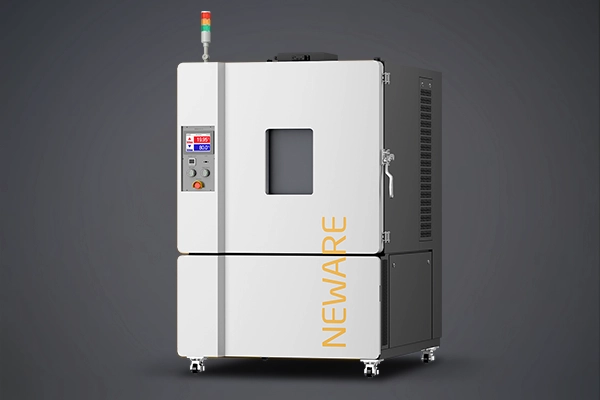
● Voltage & Current Accuracy:±0.05% F.S.
● Recording Frequency:10Hz
● Temperature Range & Deviation:-40℉ ~ 302℉±3.6℉(-40℃ ~ 150℃±2.0℃)
● Temperature Fluctuation:±0.9℉(±0.5℃)
● Heating Efficiency:68℉ → 302℉ ≤40min(20℃ → 150℃)
● Cooling Efficiency:68℉ → -40℉≤60min(20℃→-40℃)
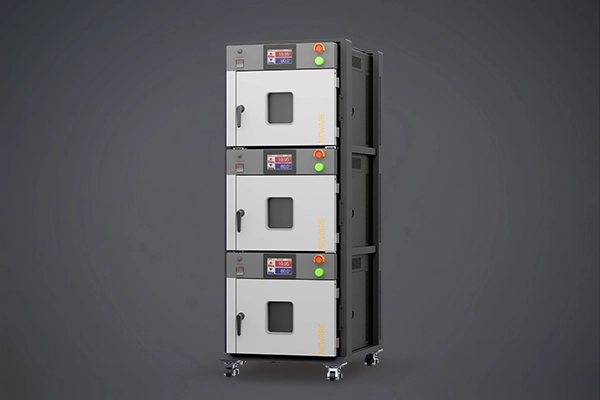
● Voltage & Current Accuracy:±0.05% F.S.
● Recording Frequency:10Hz
● Temperature Range & Deviation:-40℉ ~ 212℉±3.6℉(-40℃ ~ 100℃±2.0℃)
● Temperature Fluctuation:±0.9℉(±0.5℃)
● Heating Efficiency:68℉ → 212℉ ≤40min(20℃ → 100℃)
● Cooling Efficiency:68℉ → -40℉≤60min(20℃→-40℃)
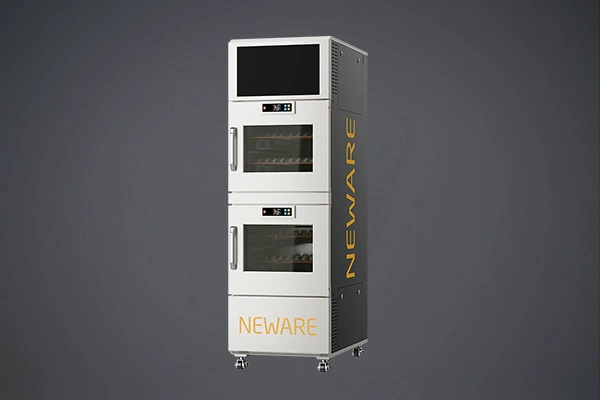
● Current & Voltage Accuracy: ±0.05%
● Recording Frequency: 10Hz
● Current Response Time: ≤1ms
● Temperature Range: 32°F-140°F (0℃-60℃)
● Heating Time: 77°F→140°F ≤30min (25℃→60℃ ≤30min)
● Cooling Time: 77°F→32°F ≤50min (25℃→0℃ ≤50min)
Offers a stable temperature and humidity environment for accurate battery performance and life testing.
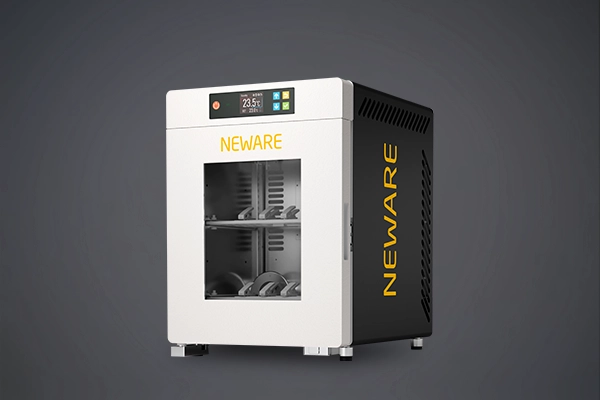
● Temperature Range :59℉~140℉(15℃~60℃ )
● Number of Channels:16CH
● Temperature Fluctuation:≤1.8℉(1℃)(No load and stable temperature)
● Cooling Efficiency:77℉ ~ 59℉≤60min(25℃~15 ℃)
● Heating Efficiency:77℉ ~ 140℉≤50min(25℃~60 ℃)
● Temperature Deviation:±3.6℉(±2.0℃)(No load and stable temperature)

● Temperature Range :32℉~140℉(0℃~60℃)
● Ambient Air Temperature :41℉~86℉(5℃~30℃)
● Temperature Fluctuation:≤1.8℉(1℃)(No load and stable temperature)
● Cooling Efficiency:≤40MINS(77℉→32℉)(25℃→0℃)
● Heating Efficiency:≤30MINS(77℉→140℉)(0℃→60℃)
● Temperature Deviation:±3.6℉(±2.0℃)(No load and stable temperature)
Simulates extreme temperature variations to test battery performance and endurance under different conditions.
Prevents explosions caused by battery overheating, short circuits, or thermal runaway during testing, ensuring safety.
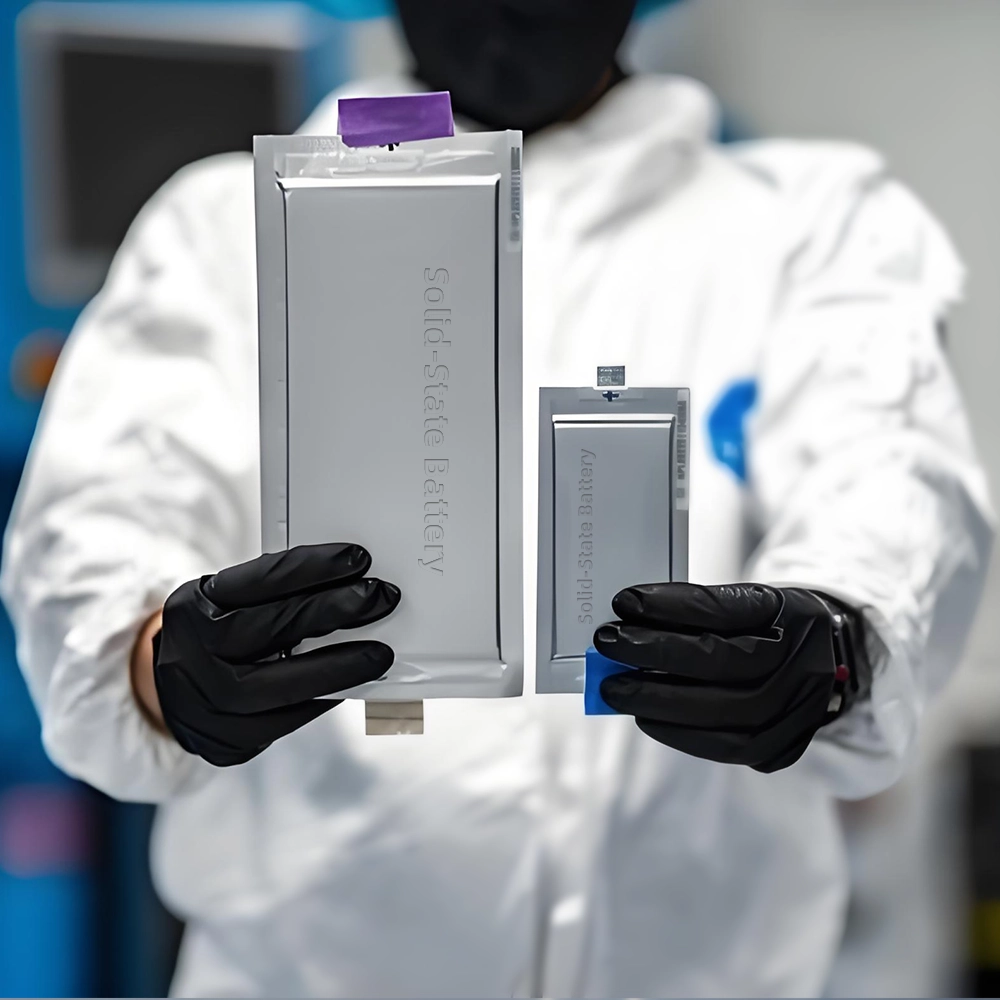
The lab focuses on solid-state battery research to overcome traditional lithium batteries' safety and energy density issues, supporting environmental sustainability. It develops innovative solid-state electrolytes, refines electrode materials, and investigates ion transfer and interface stability to revolutionize battery technology.

With the widespread use and increased frequency of cell phones, the endurance, safety, and lifespan of mobile phone batteries have become a focus of concern for both users and manufacturers. Cell phone batteries primarily use lithium-ion battery technology, but there are issues and challenges that drive the need for charge and discharge equipment to test cell phone batteries.
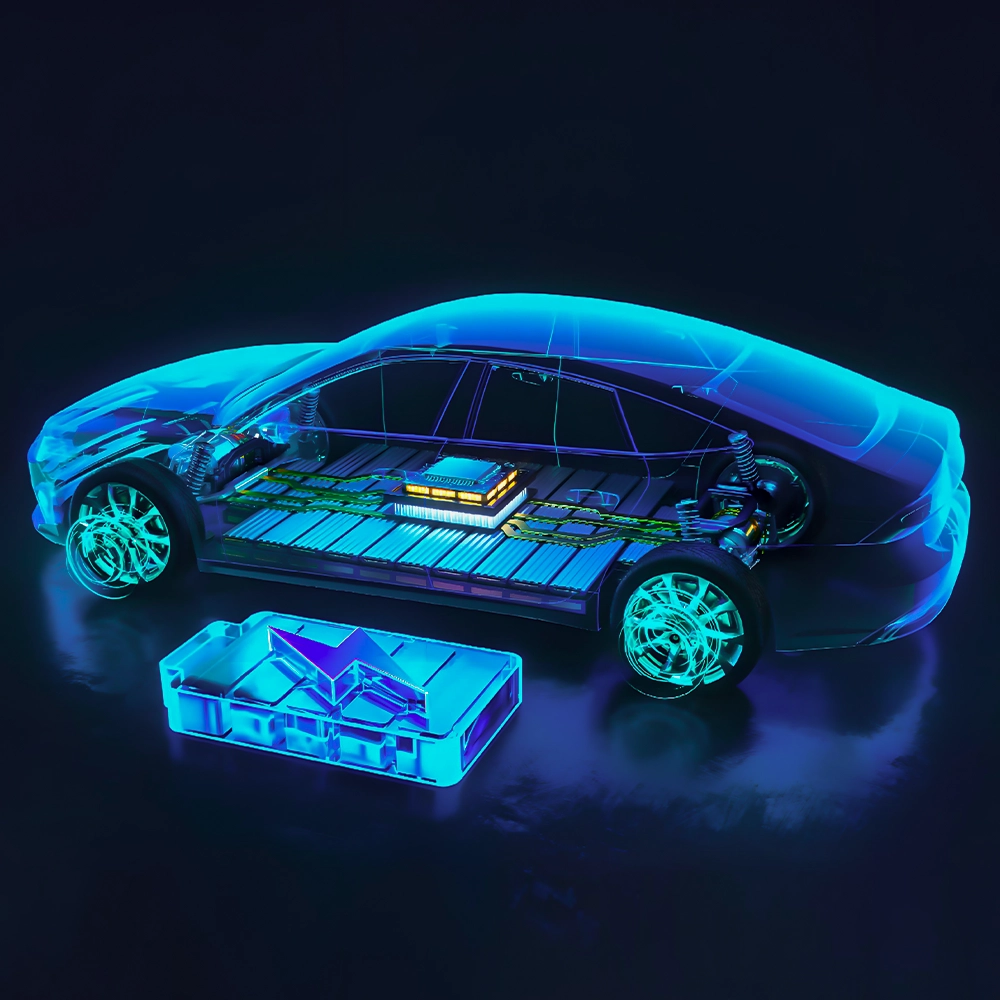
The electric vehicle battery industry is rapidly developing, focusing on technological innovation, market competition, and sustainability. Research hotspots include solid-state batteries, new types of electrolytes, BMS optimization, and recycling technologies. The environmental adaptability, safety, and economic viability of batteries are key research areas, and the industry is expected to undergo more innovation and transformation.
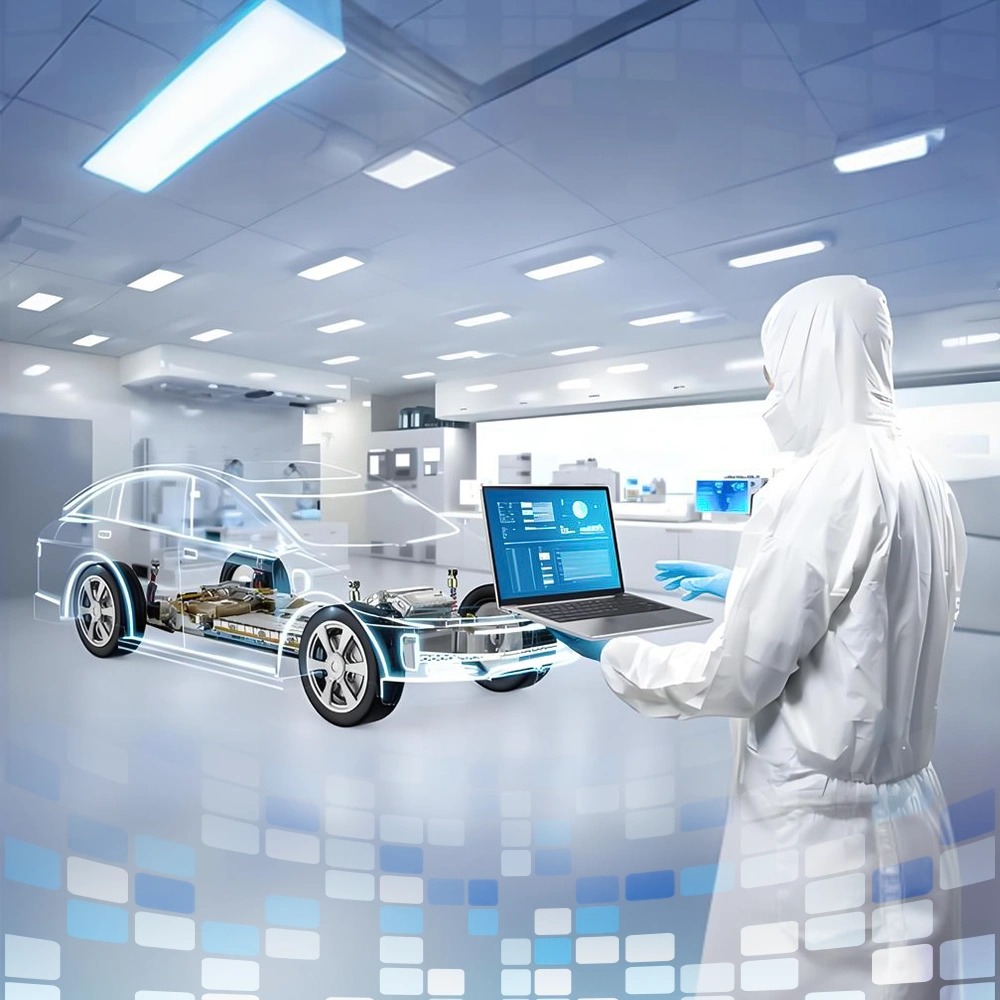
Power battery technology is facing multiple challenges, including energy density enhancement, fast charging capability, safety assurance, and cost-effectiveness. Laboratory research is focused on addressing these issues in EV power batteries. It explores advanced materials, intelligent management, and green recycling technologies to improve battery performance, ensure safety, and promote environmental sustainability, aiding the global energy transition.

Bluetooth headset and headphone have moved from the professional audio market to the mass consumer market, becoming a common accessory for smartphones and other devices due to their convenience, comfort and wireless nature.The Bluetooth headset industry is rapidly evolving and innovating by providing superior sound quality, solid connectivity, long-lasting battery life, and a wealth of intelligent features.
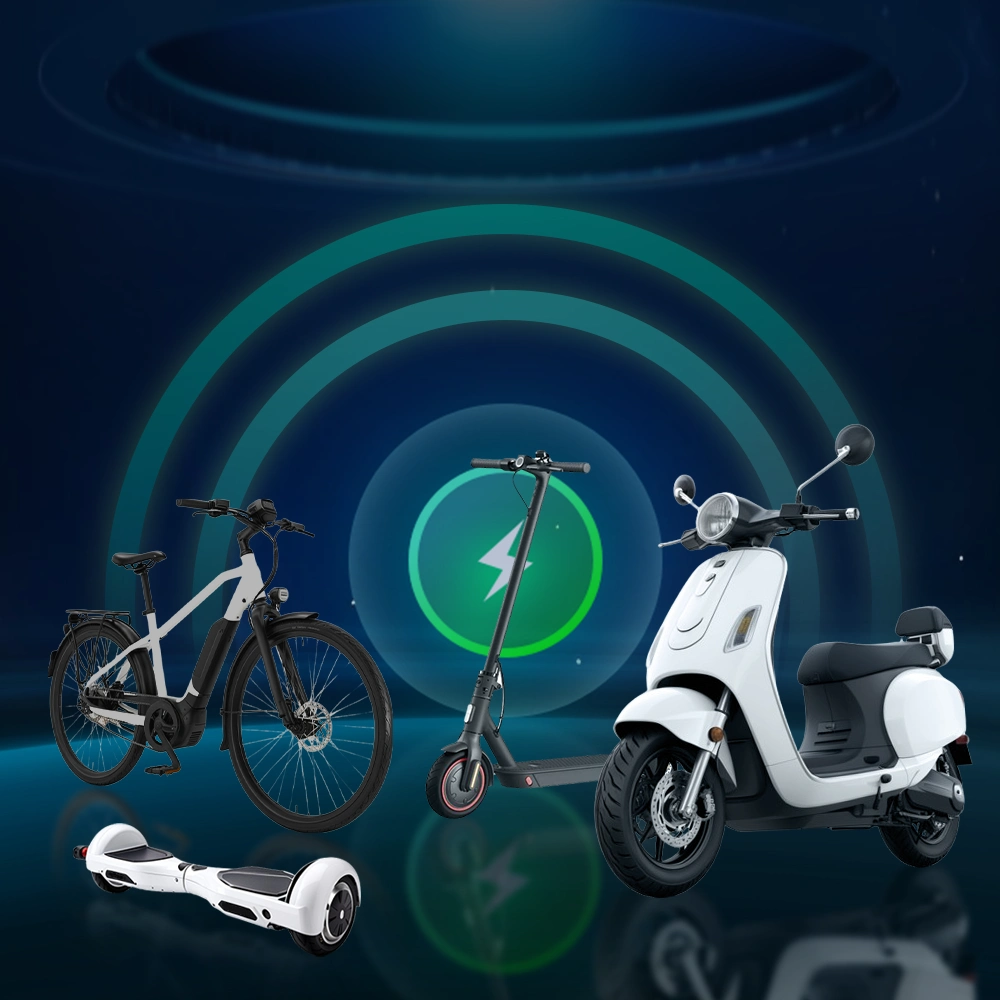
Electric Hoverboard, electric scooters, e bikes, and electric motorcycles are changing the way people travel, with the development of battery technology being at the core of this transformation. The main issues faced by electric bicycle batteries include battery cost, range, the popularity of charging infrastructure, thermal management of batteries, and safety. As battery technology continues to advance, it provides more reliable power support for these intelligent devices.